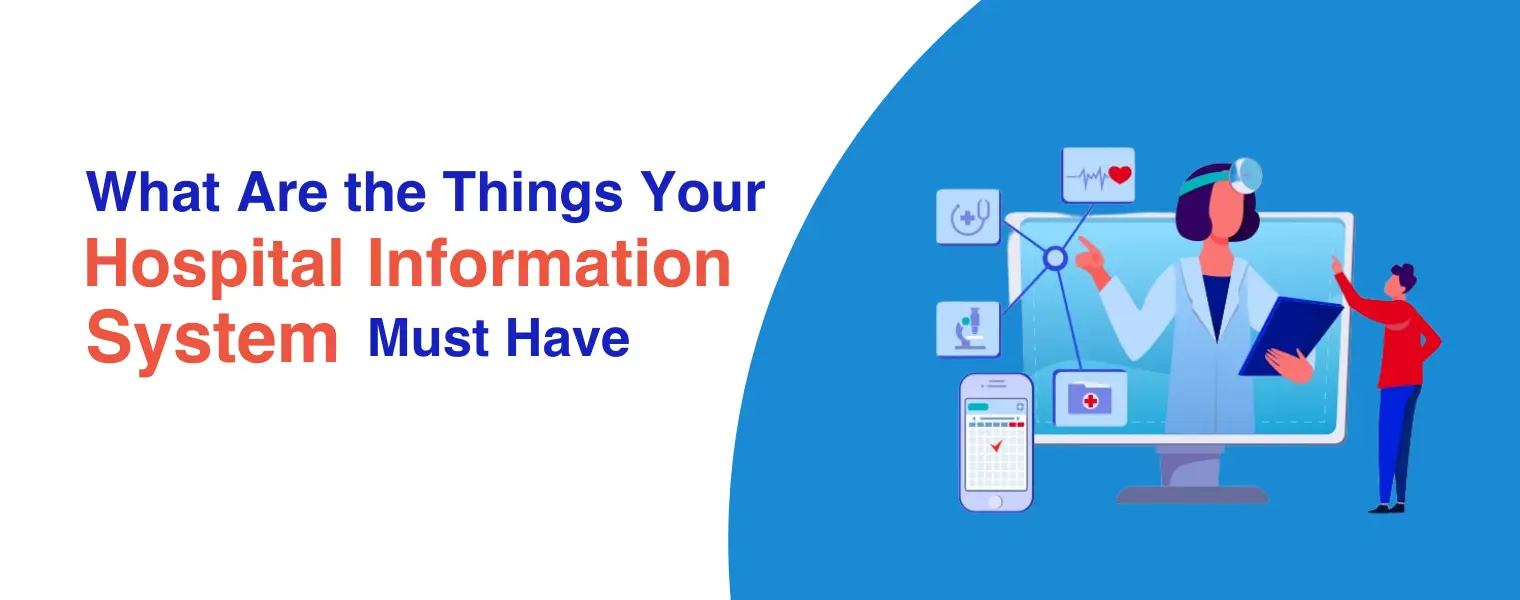
In the case of a health system, a flexible and effective Hospital Information Management System is critical. To maintain their IT infrastructure up to date, healthcare professionals are adjusting to the latest technological innovations. The Hospital Information Management System (HIS) assists healthcare organizations in overcoming the numerous obstacles that they confront in today's healthcare environment. Information is life-saving. This seems to be certainly relevant in the medical sector. Access to patient and population health data allows health care administrators, doctors, and nurses to make critical care decisions that can make all the difference in the world for their patients. Health information systems, which seamlessly and effectively integrate health care and information technology, are critical to getting health data into the correct hands as rapidly as possible. A health information system allows health-care institutions to gather, store, manage, analyze, and optimize patient treatment histories and other important data. These technologies also make obtaining information about macro-environments, such as community health patterns, simple for health-care practitioners. Furthermore, health information systems include information about specific providers or health-care organizations, such as regularly utilized therapies or interventions linked to the greatest results. Health information systems (HIS) are used by doctors and nurses to make data-driven choices about many aspects of patient care. For Instance Quick access to a patient's medical history can reveal previous therapies. Administrators might use health information systems to study statistics about different departments or operations in order to better manage the organization's resources.
Hospital information system (HIS) is a complete technology platform that enables hospitals to manage all elements of their operations, not only patient data. A hospital information system, also known as a clinical information system, is a comprehensive and integrated information system designed to manage the financial, administrative, and clinical elements of hospitals. It can be thought of as a system that aids all hospital departments in managing their data so that they can accomplish their tasks more efficiently. Not only do hospital information systems manage patient data, but they also manage financial and business data. Data, as we all know, is what drives decisions. Senior-level leaders may access all of the information that depicts the hospital's current position and assess if they are accomplishing organizational goals thanks to the entire computerized coordination of this data.
We understand that the fundamental reason we are in a hospital is to care for patients. We aspire to provide high-quality care to individuals who seek our assistance. A hospital information system can assist us in this by centralizing patient data in one electronic location, making it easier for physicians and direct care personnel to retrieve patient information. The more easily and quickly health providers can acquire information about patients, the more effectively they can assess what kind of care they should deliver.
If your hospital wants to be among the top-preferred and high-rated hospitals by insurance carriers, you can't resist using a hospital management system. Firms like Medicare and insurance companies rely on electronic data to a large extent, which is only possible with an automated system in place. It's one of the most important measures of quality. Priority is always given to a facility that can electronically send and receive patient information and medical reports.. A strong Hospital Management System distinguishes your medical center, nursing home, or hospital from the competition. It raises the market value of your company's brand.
A hospital or medical center serves mankind, but it is also a business, so profitability is also crucial. Revenue management is vital since running a hospital is expensive, and it's difficult to track using obsolete manual techniques. The goal can be efficiently achieved with an automated hospital management system that is tailored to the needs of the business. It generates timely and accurate transactional and management reports that show how the company is performing in real time. What is the total amount owed, as well as any pending invoices, debts, or interest? Due to increased operational efficiency, operating costs are reduced. It takes fewer resources to run operations when systems and procedures are automated. It is feasible to achieve a higher Return on Investment (ROI) and a faster Break-Even Point.
As previously noted, operating a hospital is a critical task with no room for error. A manual process will not ensure error-free and 100% correct processing. Errors and blunders are always a possibility. Installing an automated management system entirely eliminates the possibility of error, as well as compliance concerns and lawsuits, which are the two largest headaches for medical centers and hospitals. As a result, despite the high initial investment, it is a good deal. Additionally, minute details such as room occupancy, employee availability, and operational data can be tracked.
Hospitals that use manual procedures, according to experts, are more vulnerable to data theft and leakage than those that employ automated systems. In a full-fledged hospital administration system, every piece of information is kept safe from unauthorized access. We should, however, employ a cutting-edge system with centralized controls rather than a stand-alone home-grown system. When everything is handled by an access-controlled system, where information availability is determined by user rights, there is no room for error. Managerial systems are being built in health clinics, hospitals, trauma centers, rehabilitation facilities, and nursing homes as a result of this.
Quick, precise, and effective operational and clinical decision-making are ensured by a strong quality management system. The ability to access data points quickly and in a single view is beneficial to doctors and medical support personnel.
When a hospital is run by a cutting-edge hospital management system, it establishes itself as a technologically advanced and cutting-edge medical facility. In today’s modern highly competitive industry, a strong reputation for your institution is essential.
DoFort Hospital Management software solution will simplify accurate reporting, improved quality control, 24/7 customer assistance, cost-effective pricing, improved time management, transparency, visibility, customer services, management visibility, and a single database management system.
Welcome to DoFort !